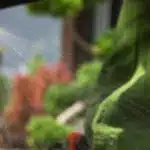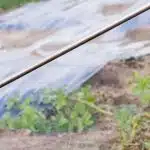For decades, people around the United States relied on Roundup to kill weeds and help their plants and crops prosper. From commercial farmers to your next-door neighbor with a flower bed, almost everyone used Roundup. That is, until word started to get out that Roundup contained a dangerous chemical called glyphosate.
Free Case Evaluation
If you or a loved one were harmed by using Roundup Weedkiller you could be entitled to compensation.
![]()
Is glyphosate dangerous?
Glyphosate does a great job at killing weeds, but it has also been linked to a variety of forms of cancer, causing lawsuits surrounding the chemical to pop up in recent years. In fact, the World Health Organization (WHO) has classified glyphosate as a probable human carcinogen. Many people who have been affected by glyphosate were farmers or groundskeepers who spent years applying the chemical and were subsequently diagnosed with non-Hodgkin's lymphoma.
Even once word started to get out about the dangers of Roundup and glyphosate, however, many people continued to use the weedkiller. It can be difficult for people to stop using a product that’s so effective, especially when the negative outcomes may not appear until years or even decades later.
What is the new Roundup formulation?
After negative publicity, declining sales, lawsuits, and public outcry, however, Bayer finally decided to make some changes in the Roundup formulation. As of 2023, Roundup sold for residential use no longer contains glyphosate.
In a statement on their website, Bayer noted that they are changing the formulation largely due to concerns over litigation. “To further reduce future litigation risk, we have transitioned the manufacturing of our glyphosate products for the U.S. residential L&G market to new formulations that have different active ingredients starting in 2023. We have taken this action exclusively to manage litigation risk and not because of any safety concerns. The vast majority of claims in the Roundup litigation have come from residential L&G users, so this step largely eliminates the primary source of future claims,” the company said.
Licensed users, such as farmers and landscapers, can still buy Roundup containing glyphosate. However, for the average homeowner and gardener, the Roundup sold on store shelves is not the same formulation it used to be.
The new Roundup formulation swapped out glyphosate for a combination of up to four chemicals, depending on the type of product you choose. These chemicals include:
- Diquat: a non-selective herbicide that has an acute toxicity greater than glyphosate
- Fluazifop: a selective herbicide that targets grassy weeds
- Triclopyr: a selective herbicide that targets broadleaf weeds
- MCPA: a selective herbicide that targets broadleaf weeds
- Quinclorac: a selective herbicide that targets broadleaf weeds and grassy weeds
- Sulfentrazone: a selective herbicide that targets broadleaf weeds and grass-like monocots
- Imazapic: an herbicide that targets broadleaf weeds, grassy weeds, and sedge weeds
- Pelargonic Acid: a non-selective herbicide

Is Roundup safe now?
It’s hard to say whether Roundup for home use is safer now than it was when it contained glyphosate. Just as it took decades for information regarding the dangers of glyphosate to come to light, it may take decades to find concerns with the chemicals now being used in Roundup.
Many of the new herbicides in the product can persist in the soil for weeks and even months. Just because glyphosate has been replaced with these chemicals does not necessarily mean they are a safer alternative. Not only could these chemicals be harmful to human health and pet health, but they could also damage your grass and plants. For example, using the wrong product on your lawn could potentially kill your grass or prevent new grass from growing.
As always, it will be important to read labels and make sure you understand what you’re spraying around your home before you start any application. Labels may also give you information about how to protect yourself, your pets, and your family from the chemicals.
Are there Roundup alternatives?
There are healthier alternatives to using chemicals like Roundup or glyphosate in your lawn and garden. For example, you can try a homemade weedkiller made of vinegar, salt, and dish soap. Alternatively, you can try spreading boiling water, salt, or lemon juice on your weeds. If you’re trying to make healthier swaps at home, this is a great place to start, especially if you have a home garden and are trying to avoid unnecessarily spraying chemicals on your food.
When it comes to avoiding Roundup, glyphosate, and other chemicals when you shop at the grocery store, it’s best to purchase organic food when you can. This doesn’t just apply to fresh produce, either. Even kid-friendly snacks like crackers and goldfish can contain glyphosate, especially because it can be used as a drying agent.
If you have used Roundup in the past, it’s possible you have been negatively affected, especially if you have been diagnosed with non-Hodgkin’s lymphoma. Thousands of people who have been affected have filed lawsuits against Bayer, and you may be eligible to file a lawsuit as well.















